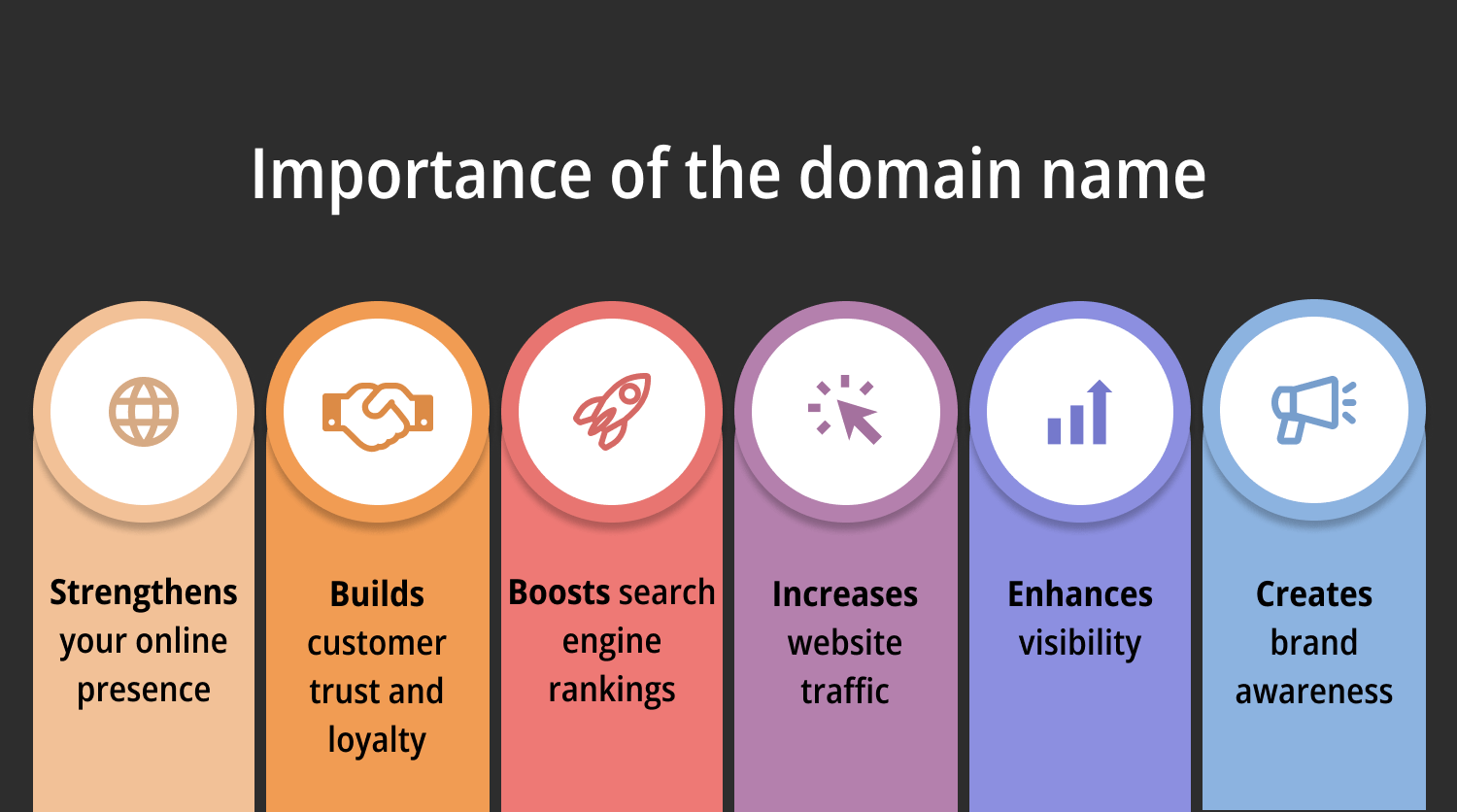How to Use Your Domain Name for Effective Online Marketing
In the ever-evolving digital landscape, your domain name isn’t just your website’s address—it’s a powerful marketing tool that can enhance your online presence, brand recognition, and customer engagement. Choosing the right domain name and using it effectively for online marketing can significantly impact your website’s visibility, trustworthiness, and overall success.
Here’s how you can use your domain name strategically to boost your online marketing efforts.
1. Choose a Domain Name That Reflects Your Brand
The first step in utilizing your domain name effectively for online marketing is selecting one that represents your brand’s identity. Your domain name should be more than just an address; it should be an integral part of your branding strategy.
Tips for Choosing the Right Domain Name:
- Align with Your Brand: Ensure your domain name matches your business name or product, so it’s easy for customers to associate your website with your brand.
- Keep It Simple: Choose a short, memorable, and easy-to-spell domain name. The simpler your domain name, the easier it is for people to remember and type into their browser.
- Use Keywords: If possible, incorporate relevant keywords into your domain name. This not only helps with search engine rankings but also clearly communicates what your website is about to visitors.
A well-chosen domain name builds a strong brand image and makes it easier to market your business across multiple platforms.
2. Make Your Domain Name Part of Your Marketing Materials
Your domain name should be prominently featured in all your online and offline marketing materials. Whether it’s through social media, emails, or advertisements, ensuring your domain name is visible and accessible is key to driving traffic to your site.
Incorporating Your Domain Name:
- Social Media Profiles: Include your domain name in the bio or description sections of your social media profiles. A direct link to your website helps drive traffic and reinforces your brand identity.
- Business Cards and Print Materials: Display your domain name on business cards, flyers, and other print marketing materials to create consistent brand messaging.
- Email Signatures: Always add your domain name to your email signature to subtly promote your website with every email you send.
By consistently displaying your domain name across all marketing channels, you create a unified presence and increase your website’s visibility.
3. Optimize Your Domain for SEO
Search engine optimization (SEO) is crucial for getting your website noticed on search engines. Your domain name plays a key role in your SEO strategy. While it’s just one factor in ranking algorithms, having a well-optimized domain can give you an edge.

SEO Strategies for Your Domain Name:
- Keyword Inclusion: If possible, include relevant keywords in your domain name that reflect your business or industry. For example, if you sell eco-friendly products, a domain like “GreenProducts.com” could boost your SEO efforts.
- Choose a Relevant Domain Extension: While “.com” remains the most popular and trustworthy extension, alternative domain extensions like “.co” or “.net” can work if they align with your brand. However, always prioritize credibility when choosing a domain extension.
- Avoid Complex Names: A simple, easy-to-type domain name is more likely to rank better. Complex names with numbers or hyphens can confuse search engines and potential visitors.
A strong, SEO-optimized domain name can improve your website’s chances of ranking higher in search results, which leads to more organic traffic.
4. Use Your Domain for Email Marketing
One of the most effective ways to use your domain for online marketing is by setting up branded email addresses. A branded email (e.g., info@yourdomain.com) helps build credibility and trust with your audience, compared to generic email providers like Gmail or Yahoo.
Benefits of Branded Email Addresses:
- Professionalism: Using your domain for email addresses makes your business appear more legitimate and trustworthy.
- Consistency: A consistent email address that matches your domain name makes it easier for recipients to recognize your business and reduces the chances of your emails being marked as spam.
- Increased Engagement: Customers are more likely to open emails from a branded address, increasing the effectiveness of your email marketing campaigns.
Having a professional email address linked to your domain helps reinforce your brand and promotes customer engagement.
5. Create a Custom URL Structure for Easy Navigation
Your domain name doesn’t just need to be catchy—it should also work effectively for navigation and content marketing. A well-organized URL structure can make it easier for visitors to find your content and share it with others.
URL Structure Tips:
- Use Clear Paths: Organize your content using clear, logical paths. For example, “yourdomain.com/products” or “yourdomain.com/blog” makes it easy for visitors to find and share your pages.
- Include Keywords in URLs: Just like your domain name, the individual URLs of your pages can be optimized for SEO by including relevant keywords. This improves search engine visibility and makes your website more user-friendly.
- Short URLs: Keep URLs short and easy to remember. Overly long or complex URLs can be cumbersome and difficult for users to share.
A clean, easy-to-navigate URL structure can improve user experience and drive more traffic to your website, which boosts your marketing efforts.
6. Build Trust with SSL and Security Features
Online security is more important than ever, and a secure website is essential for maintaining customer trust. Using an SSL (Secure Sockets Layer) certificate ensures that your website is secure, which is not only important for your visitors’ safety but also for your marketing strategy.
SSL and Security for Marketing:
- Trust Signals: When customers see the “https” in your domain name, along with the padlock symbol, they know that your site is secure, which boosts trust and encourages them to take action (like making a purchase or submitting their information).
- Better Rankings: Search engines like Google prioritize secure websites, so having an SSL certificate can contribute to better SEO rankings, leading to increased visibility.
A secure website gives potential customers peace of mind and encourages them to engage with your content, buy your products, or sign up for your services.
7. Track and Measure Your Marketing Success
Once you’ve established your domain name and integrated it into your marketing efforts, it’s important to track its effectiveness. Using tools like Google Analytics allows you to measure website traffic, user behavior, and the success of your marketing strategies.
Tracking Performance:
- Monitor Traffic Sources: See where your visitors are coming from, whether it’s social media, email campaigns, or organic search, and optimize accordingly.
- Refine Your Marketing Tactics: Use the insights from your analytics to refine your online marketing strategies. This can help you identify which tactics are working and which need improvement.
Tracking your domain’s performance gives you valuable insights into your audience and allows you to fine-tune your marketing efforts.
Conclusion
Your domain name is a powerful asset in your online marketing toolkit. By choosing the right domain, incorporating it into your branding, optimizing it for SEO, and using it consistently across your marketing channels, you can boost your website’s visibility, credibility, and overall success.
Make your domain a central part of your marketing strategy, and watch your online presence grow. Whether through branding, email marketing, or SEO, a good domain name can enhance your business’s ability to connect with customers and achieve your marketing goals.



